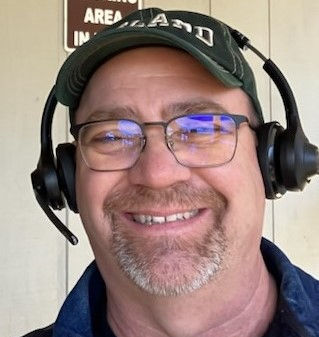A Safe, Comfortable Place to Stay After the Greenfield Tornado
- NEIA Red Cross

- May 27, 2024
- 3 min read
Updated: May 28, 2024
By Ashley Peterson-DeLuca
Where do you go if your home and your relatives’ homes were destroyed by an EF4 tornado, and you were just discharged after a night in a hospital from injuries caused by the storm? The Red Cross can help.
After a devastating tornado tore through the small community of Greenfield, Iowa, the Red Cross set up a sheltering location and resource center at a local elementary school. In fact, the Red Cross often opens shelters as part of their response to natural disasters. Eunice Mennenoh and Kris Lange are the Red Cross volunteers who managed the day shift for Red Cross sheltering in Greenfield.

They welcomed a local resident who was facing that situation. He had additional health needs, was using a wheelchair due to injuries and had nowhere else to go because so much of his community was damaged.
“Red Cross shelters provide a place to sleep as well as food," says Mennenoh. "We try to accommodate disabilities and functional needs of individuals."
Lange, who is also from Central Iowa, adds: “The shelter is a quiet place where you can sit down and rest.”
The Red Cross set up in the shelter for Greenfield in a local school gymnasium, next to a medical response center and where people can pick up clean-up kits. There are individual cots set far enough apart to give personal space, individual showers as well as meals, snacks and water available. They can shelter up to 50 people. Outside is a desk run by at least two Red Cross volunteers.
“We limit the people who are allowed in," says Lange. "That’s their home right now."
For Lange, who has been a Red Cross volunteer for three years and done multiple out-of-state deployments, responding to Greenfield was personal.
“My father passed away because of the Parkersburg, Iowa, tornado. The Red Cross really helped me then,” says Lange. “It’s very near and dear to my heart. I just know my dad would’ve wanted me to be exactly where I was. It closed my personal journey of grief.”
Because of her experience being both a volunteer and client, she understands just how impactful Red Cross volunteers are after a disaster.
“They know the answers and questions you don’t have the words for yet,” says Lange. “The Red Cross is the expert in natural disaster response. It is a very well-organized, well-oiled machine.”
It was the lack of resources in her hometown of Audubon, Iowa, that encouraged Mennenoh to join the Red Cross as a volunteer in 2020. At the time, her husband was the emergency manager for the county.
“If there was a dwelling fire, he would call the Red Cross," says Mennenoh. "There was nobody in our county to respond to that.”
Mennenoh has also found a community of people who she looks forward to seeing during deployments.
“It seems like the Red Cross attracts good people. When doing sheltering you get to see other Iowa and Nebraska volunteers who you’ve run into periodically,” says Mennenoh. “I also got to meet the guys doing the night shift who are from Georgia and California. It was fun to hear their stories.”
Both Mennenoh and Lange live in small Iowa communities and understand that those communities are used to being self-sufficient, but they encourage folks to reach out to the Red Cross when they need support.
“Everybody needs a boost. We’re used to giving and not receiving. It is tough to be on the other end of it,” says Lange. “There will be brighter days ahead. I know that when people are ready, they’ll give back.”
If you have been impacted by these storms and need help, contact 1-800-RED CROSS (1-800-733-2767). Download the free Red Cross Emergency App for the latest information on shelters available in your community.




Comments